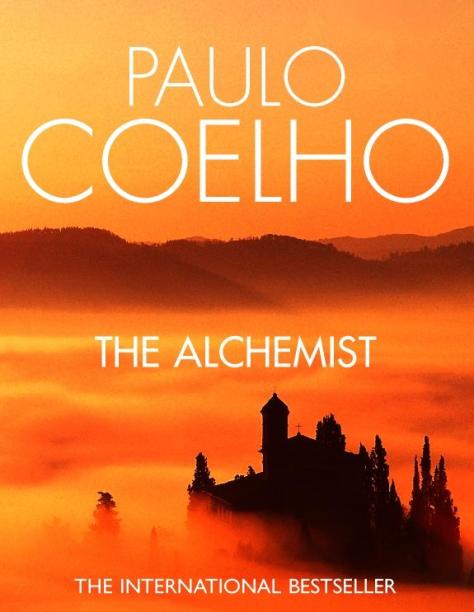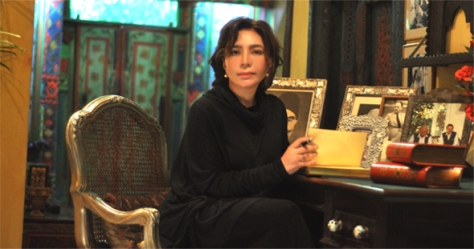“And when you want something, all the universe conspires in helping you to achieve it.”
The Alchemist is Paulo Coelho‘s most famous book which he wrote in mere two weeks and published in 1988. The book is on the list of one of the most read books in the history of literature with the name mentioned in the Guinness World Records for being the book translated into most languages. By 2015, the book has been translated into 80 languages and had sold more than 65 million copies.
The book is about Santiago, the Andalusian shepherd, dreaming about finding the treasure in the Pyramids of Egypt. Santiago makes up his mind about the quest for treasure. He meets numerous people during his spiritual journey who inspires/influences him and will give that same impression to the readers.
The book can easily be fragmented into four parts:
- The first phase is Santiago’s dream and contribution of gypsy woman and old king of Salem, Melchizedek towards the boy’s goal of treasure digging.
- The second phase is his life in Tangiers where he is robbed and works for a crystal merchant.
- The third phase is the expedition at al-Fayoum Oasis where Santiago meets an Englishman who is in search of the Alchemist. This is where the boy falls in love with Fatima but she persuades him to find the treasure first.
- The final phase is meeting his last inspiration, the 200-year-old Alchemist himself. He plays a very important role in the boy’s treasure hunting.
The Alchemist is a human torch on a journey of hope with supernatural power towards WILL. Need a hand? Then hold this book and read. The book has one story but we all are connected somehow. A tremendous guide!!
Why this book inspires you after reading? Because no matter what religion you follow, what faith you obey, what career you pursue, whoever or whatever you love… the flow of the story teaches you something at every turning page. The reader is at ease solving the riddle of his life.
The author digs more about the human psychology and spiritual philosophy of life than you may act/react at your side in your own world. At every point of twist, the author shatters the puzzles and fixes them for your most difficult questions to be answered.
Paulo repeats some specific words and during the storyline, the writer indirectly emphasizes the readers to work on it. Some of these are omens, personal legend, the soul of the world and maktub, etc. ‘Maktub’ is an Arabic word that means ‘It Is Written’. The word is used by a few of the characters repeating when the character is at the defining moment where they choose to say ‘Maktub’ that whatever happening is written in your fate. The word is introduced by the crystal merchant.
Melchizedek talks about Personal Legend to Santiago, which he defines as “it is always what you want to accomplish in life.” The word ‘Omens has its own prominence like the previously mentioned words. Paulo has repeatedly motivated his main character Santiago to follow his ‘Omens’ to find the treasure. In an interview, Paulo defined “Omens are the individual language in which God talks to you” which gives a more clear point to a common person. The word ‘Omens’ is the highest level of motivation by which one can succeed. To my understanding, there is something in me and you that creates and builds your wants, and empowers you to reach your goal and make it possible. That something is your Omen, and God creates and builds your omens only if you want Him to assist you in achieving/accomplishing. That is how some specific Coelho words are worked on the human minds helping them to live and breathe a better life.
Creativity is remarkable. Some names in the books are major references that the reader must understand. The name of the old King is Melchizedek who actually is mentioned in the Book of Genesis 18-20. Melchizedek holds kingship of Salem which is a biblical name of Jerusalem mentioned in Psalm 76:2. The two stones, Urim and Thummim which he gives to Santiago are basically associated with the sacred breastplate worn by the High Priest of the Israelites. These stones are mentioned in the Book of Exodus which is used to determine God’s will.
The Alchemist has the possession of Elixir of Life and Philosopher’s Stone. Both are legendary substances. Philosopher’s Stone is a chemical substance that turns any metal into gold whereas Elixir of Life is a drink by which the drinker is granted eternal life/youth and never gets sick. Both the substances of Alchemists are called their Master Work.
London Times says that Paulo’s books have had a life-enchanting effect on millions of people, so as this book. And New York Times has a better compliment for his writing which says that this wizard makes books disappear from stores. I am not admitting that my life has changed, but I am admitting that by reading this book, I am becoming aware of my options when I am surrounded by life’s complicated issues. Now I will be more at ease than before to decide why, what, when, where, and how to do it. Paulo is like a spiritual teacher becoming the reader’s imaginary friend, motivating and cheering you by reminding you to follow your omens. Such a book is recommended to every reader who surely will learn a lot from it.
Thank you so much Rossie Nathalie for suggesting this book…
Follow me on Twitter @saminaik_asn









